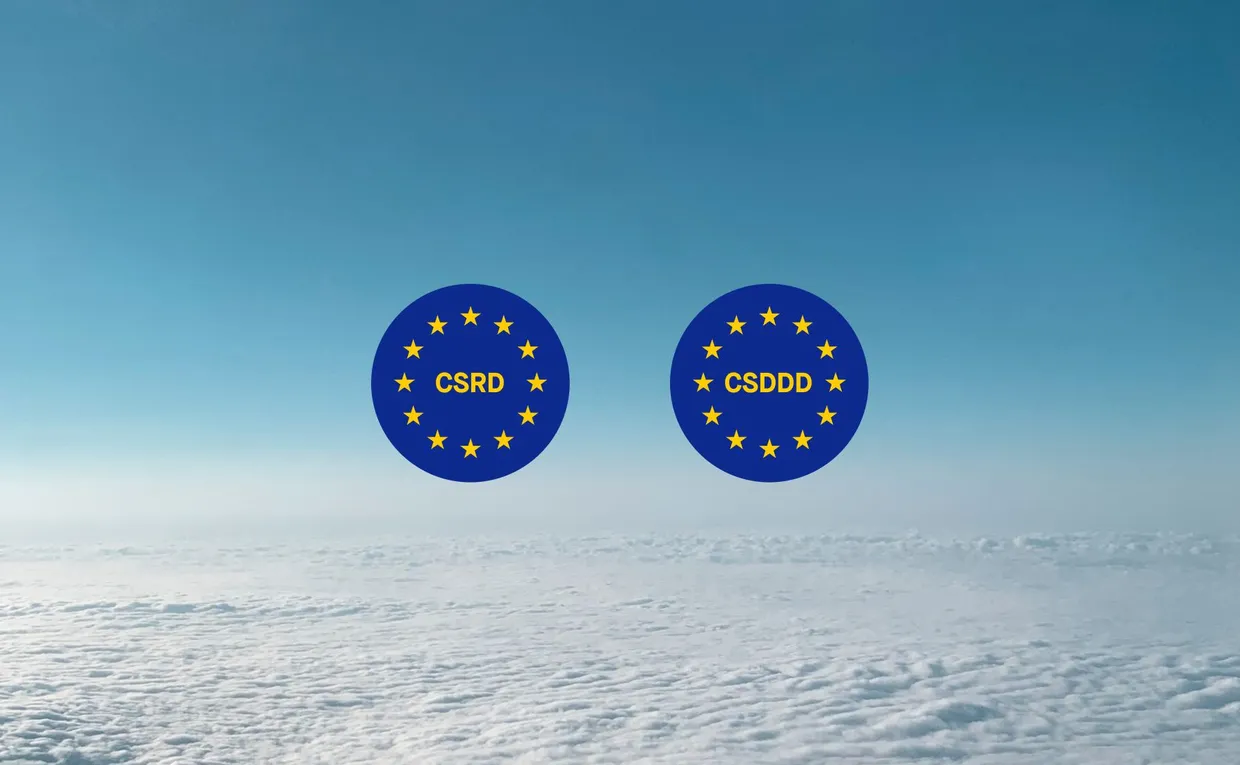Don’t let COP26 disappointment slow down your climate action. Now’s the time to take responsibility for our footprint, anticipate climate risks and seize new opportunities.
The world went to COP26 optimistic and with high expectations. And many went home disappointed. In reality, we know governments alone cannot take care of our climate mess.
It’s a global issue. Everyone has a part to play. While we were in Glasgow, it was clear that corporate and finance leaders alike are ready to up their game – for the sake of both the planet and their business’s survival.
The science is clear: we’re on a path that exceeds 1.5C, which means we will face more extreme weather events, food and housing insecurity and global economic disruptions.
While they might not exactly know how to become climate-resilient yet, businesses all agree it’s necessary. And some have also realised that moving towards a low carbon economy will actually bring more business opportunities, too.
Drawing from our conversations, talks and analysis of COP26, we’ve put together insights from the business world so you’re all set to join the climate ride:
📏 Measure your footprint, act for impact
The companies that have started tracking emissions had the same feedback: seeing their footprint in numbers was a major trigger to do more. They’ve realised that introducing a recycling policy and meatless Mondays in the office was not enough. Over half of corporate emissions come from their supply chains (scope 3). That’s why it’s important to first conduct a detailed, science-based, carbon assessment. Then use numbers to build a reduction plan.
🙏 Humility is the secret to leading a successful green transition
You don’t speak carbon accounting? Most executives don’t either. But, we noticed that those who have started their green transition are driven by the humble desire to ask experts, learn and take responsibility for their impact. Join networks, build partnerships, hire talent – you will feel more confident about your transition if you surround yourself with the right people.
💰 Contributions can fill the climate finance gap
One of the main criticisms of the Glasgow agreement is that it fails to provide more financial help to the states most vulnerable to climate change. But companies can contribute to the finance gap by investing in certified climate projects that help mitigate and adapt to the consequences of the climate crisis. For example, helping farmers adopt sustainable agriculture practices and protecting whales, which are natural carbon sinks.
🕹️ The finance industry has a key role
We hear that financial organisations are worried about their scope 3 emissions – especially those generated by investing, lending and underwriting activities. But it’s also a chance to tip the carbon balance. A robust, full-scope climate strategy will prompt all their portfolio companies to take action and reduce their emissions. And it will encourage them to invest in low-carbon industries and climate projects that contribute to global net-zero efforts.
🌟 Lead with transparency
Some think that greenwashing is better than saying nothing. We disagree. Trust is what drives business, not misleading claims. Wherever you are in your sustainability journey, come clean about your successes, pitfalls and what’s still ahead of you. Transparency is the way forward to keep customers, staff and other stakeholders with you throughout your green transition.
💺 Get startups a seat at COP27
Start-ups were thin on the ground at COP26. Most of the founders on site got a ticket because they have the right network. But joining the climate talks shouldn’t be a privilege… We are not on track to meet 1.5C, and technology will play a big role in dealing with the consequences of climate change. So it’s time to bring startup founders to climate negotiations.
If we learned one thing at COP, it’s that green business practices are gaining traction. Call us stubborn optimists, but we think that corporate action, coupled with all the steps taken by governments, nonprofits and youth, will help us tip the balance.
US Climate Envoy John Kerry went a step further by saying companies are well ahead of governments and “will fix the climate crisis.”
JK is counting on you. Don’t let him down.



